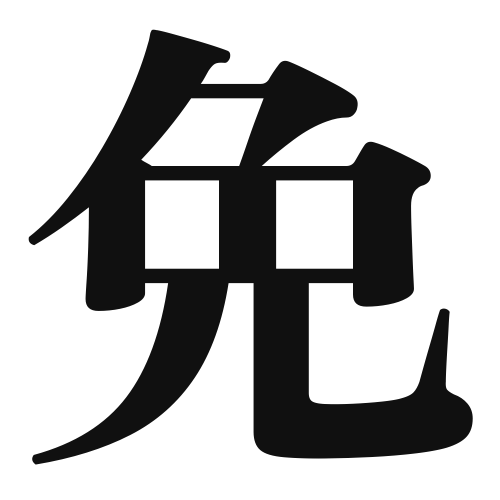1. Overview of Meaning
The kanji “免” (men) generally means “to exempt,” “to avoid,” or “to escape.” It conveys the idea of being freed from a duty or obligation.
2. Formation and Radical
Formation of the Kanji: The kanji “免” is classified as a phonetic-ideographic character (形声文字). It combines the meaning of avoiding or escaping with a phonetic component.
Radical: The radical for “免” is “免” itself, which relates to the concept of exemption or avoidance.
3. Examples of Usage
Common Words and Phrases: Some frequently used words that include “免” are:
- 免許 (menkyo) – license
- 免除 (menjo) – exemption
- 免疫 (men’eki) – immunity
Example Sentences in Daily Conversation:
- 運転免許を取得しました。 (Unten menkyo o shutoku shimashita.) – I obtained my driver’s license.
- 彼は税金の免除を受けました。 (Kare wa zeikin no menjo o ukemashita.) – He received an exemption from taxes.
4. Synonyms and Antonyms
Similar Kanji: A similar kanji is “逃” (tō), which means “to escape” but emphasizes the act of fleeing rather than being exempted.
Antonyms: An antonym is “義務” (gimu), which means “duty” or “obligation,” representing the opposite concept of being exempt.
5. Cultural and Historical Background
Relation to Japanese Culture: The concept of exemption is significant in Japanese culture, particularly in contexts like tax exemptions or legal exemptions.
Proverbs and Idioms: One common expression is “免れる” (manukareru), which means “to escape from” or “to be exempted from,” often used in various contexts to indicate avoidance of negative situations.
